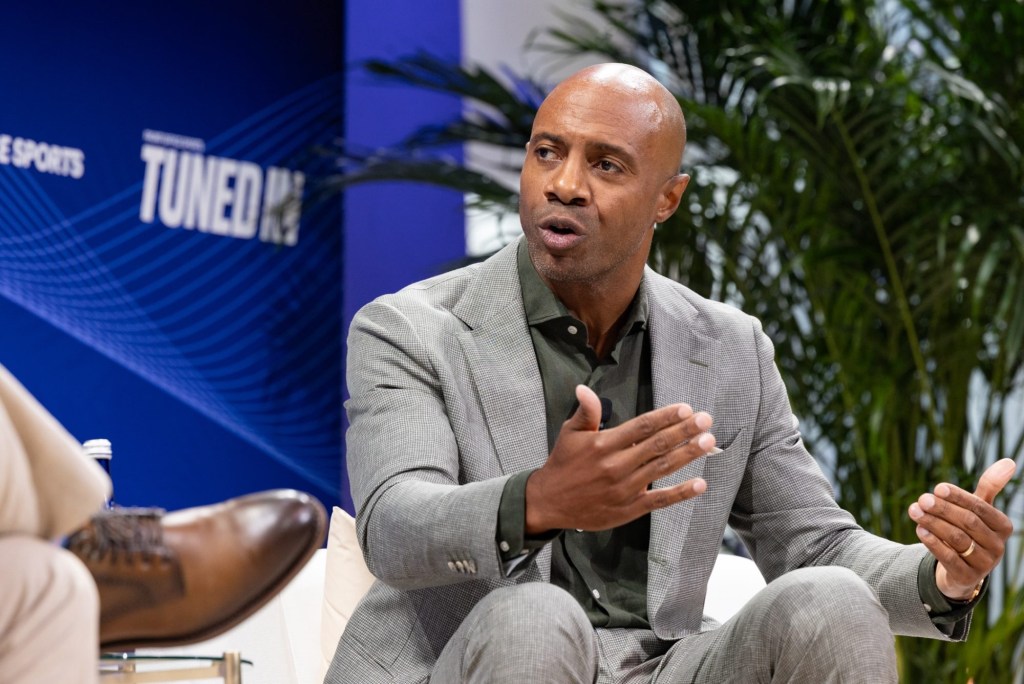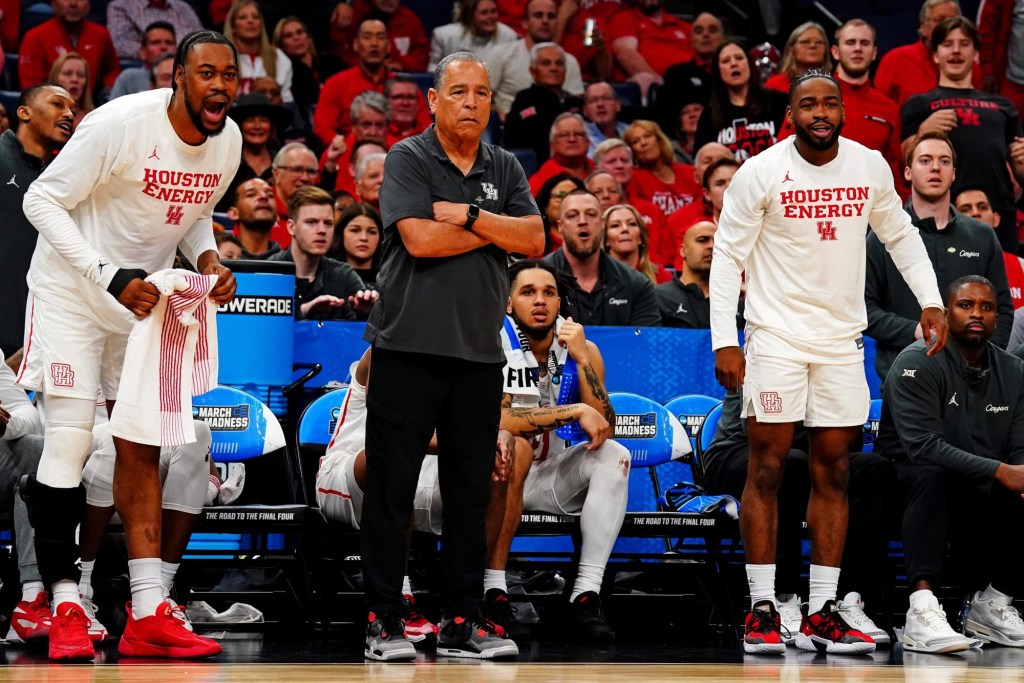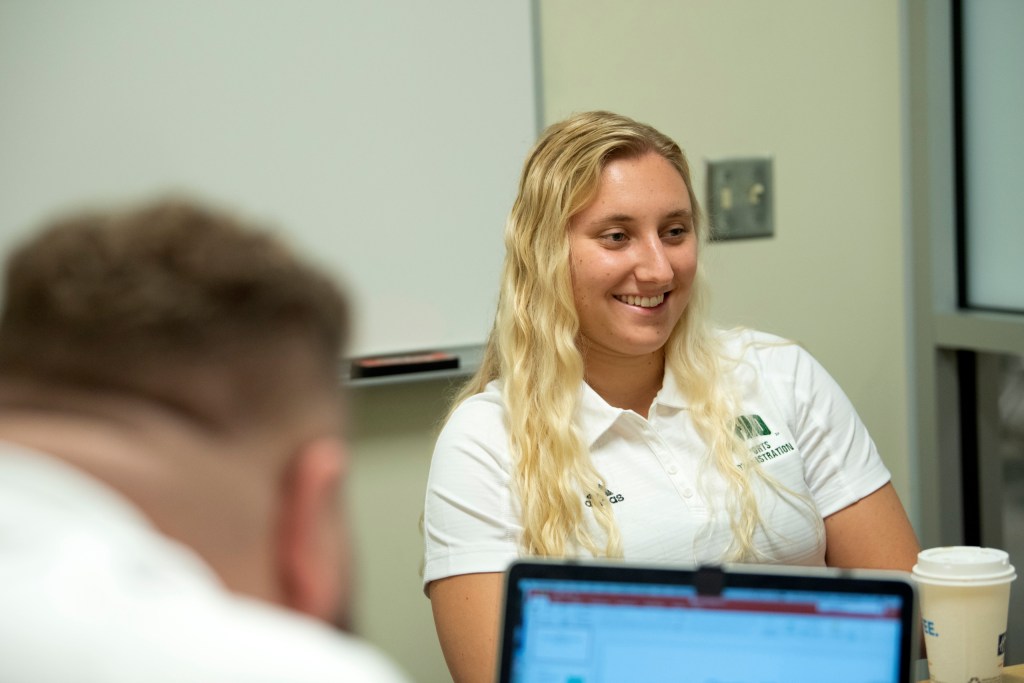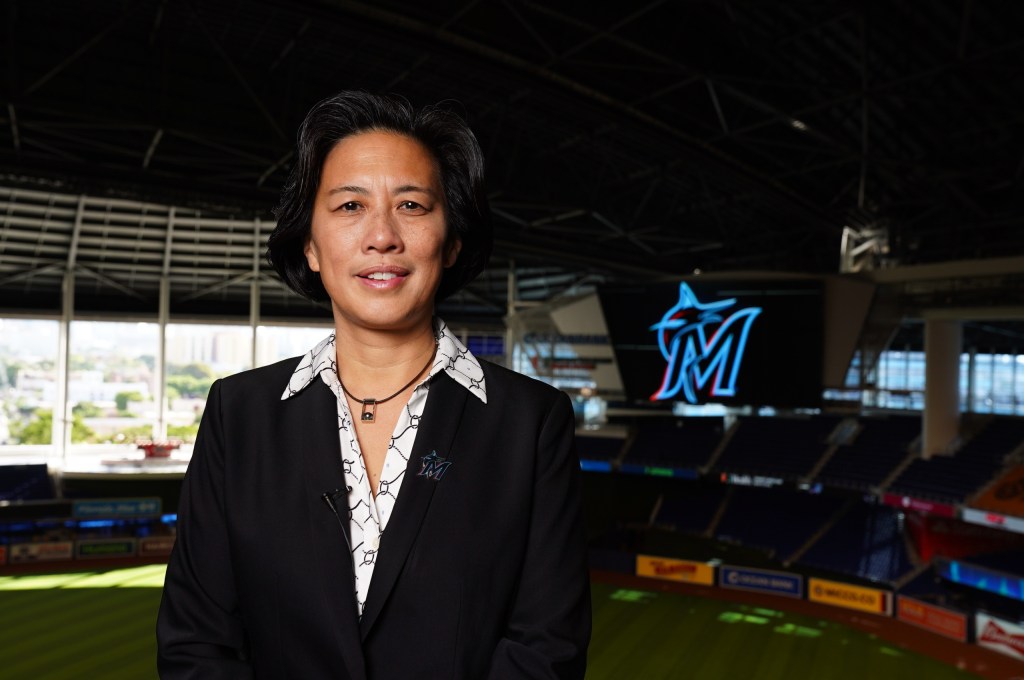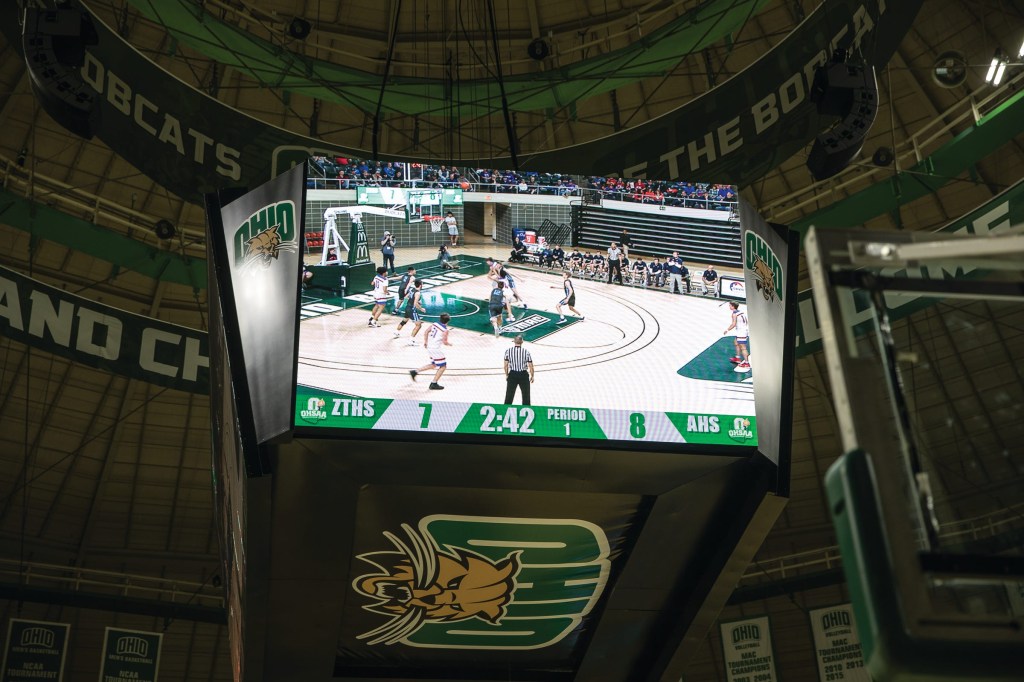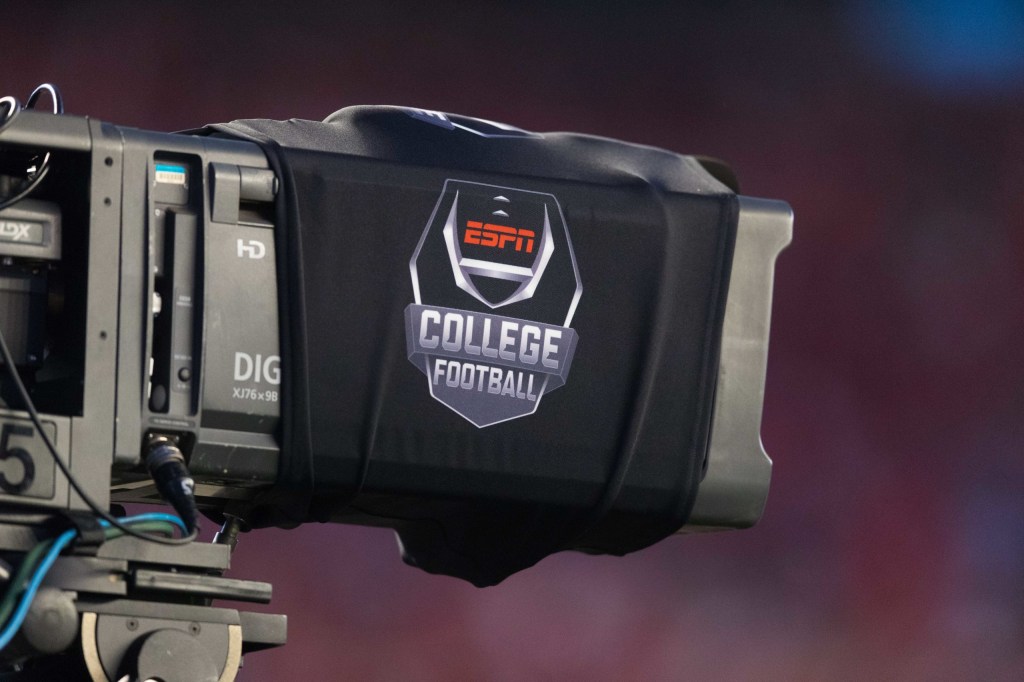We have the power to change an industry. It is our turn to seize the opportunity.

By Maureen Tremblay, @maureentremblay
This post is a part of the #YPSportsChat Blog Series! This series gives young professionals an inside look at the intricacies of the sports business world and advice on how to navigate it.
I am a Millennial. I fall into this classification along with many of my peers born from approximately 1983–1997. This current cohort now makes up a vast majority of the young professionals in our society, particularly in athletics.
In a field that offers graduate assistantships, internships, and careers for recent grads, intercollegiate athletics is constantly developing the emerging Millennial. While this generation has been described as selfish, coddled, and lazy, I believe this to be a missed opportunity to highlight the strengths of the emergent generation in the work force.
Millennials have common characteristics that will soon define the field of athletics, and we will be part of the changing landscape of the collegiate world.
I will be the first to admit that I don’t have much experience in a career in athletics. I am a graduate of Oregon State University, where I spent five years as a student-athlete. I competed for the Track & Field/Cross Country team and earned degrees in Exercise & Sports Science and Health Education.
I didn’t have plans to work in college athletics, but a push from a valuable mentor at the end of my senior year led me to a graduate assistantship at Clemson University. I have spent this past academic year working in Clemson’s Student-Athlete Development department where I oversaw the Leadership Development and Team Culture initiatives, worked as a liaison for four sports teams, and was the head SAAC advisor.
One year down, and I can say that I have truly found my career passion. My time as a graduate assistant has offered many challenges, incredible opportunity, and great insight to determine the ways in which I, as a Millennial, can find purpose, develop myself, and give back to the profession.
Here are the 11 things that I recommend to other Millennials emerging in this field in order to grow, capitalize on your skill set, and help develop the future of college athletics.
- Value- Millennials desire to feel value in their work. Regardless of which department you work for within athletics, make sure it aligns with your passions and personal values. If you are doing work that doesn’t satisfy either of those, burnout will come quickly. Additionally, make sure you admire the mission and/or values of the institution so that your work contributes to the identity of the department.
2. Mentorship- Find a mentor. This could be a boss, department head, or administrator who can offer guidance and support when needed. If you don’t have one yet, find someone you admire and ask. I have been pleasantly surprised with the willingness from many of my supervisors to offer guidance. Mentors can come from an array of areas, so don’t feel confined to the staff in your department. Additionally, many organizations (like N4A for example) offer mentor/mentee programs to help young professionals find guidance as they grow in the field.
3. Collaboration- Millennials seek to be part of a team. There is no better place for this than in college athletics. Our field is beginning to move in a more cooperative direction as many departments have started to merge, collaborate, and use support staff to develop the holistic student-athlete. No matter which department you are in, the potential resources are endless on college campuses. Consider reaching out to other departments, student groups, campus clubs, community partners, corporate sponsors, local service organizations, professors, advisors, college heads, or prominent students. You will be surprised with the amount of people willing to help and the value that individuals from diverse areas can add to your department’s projects.
4. Belonging- We want to feel like a part of something greater than ourselves. Join the professional organizations within your field. Groups like the NACDA affiliates, Women Leaders in College Sport, NCAA partnerships, and alumni associations are great ways to contribute to a larger organization, gain community, and network with professionals. Additionally, attending these conferences and conventions is an excellent way to expand your knowledge and relationships in the field.
If you liked this, click the???? to the left or below so other people will see this here on Medium.
5. Impact- Millennials want to feel like their work makes a difference. In college athletics, we strive to impact the student-athletes. If you are in a department that does not have direct relationships with student-athletes, find ways to gain that connection. Attend games, visit the facilities, expand your media coverage to profile individuals, or ask to attend a SAAC meeting. Getting to know the student-athletes that we work for will help demonstrate the impact that our jobs have, and can help to make your work more intentional and purposeful towards the needs of the current student-athlete population.
6. Challenge Yourself- Continue to push yourself out of your comfort zone. Personal growth comes when these boundaries are stretched. Ask for more responsibility, volunteer for unique projects, take initiative, and get involved with other areas. Employers want to see that you are well-versed in the field of athletics, and can go above expectations. When initiative is demonstrated, people take notice, and this could ultimately lead to your next job offer.
7. Anticipate Change- The field of college athletics is constantly evolving. Millennials are at the forefront of this change because we are closest in age to the current population of student-athletes. When change is anticipated, we are more likely to be proactive about adjusting practices to increase success. Currently, much of this transformation is tied to technology. Wearables, social media, and broadcasting are shifting the way that student-athletes are monitored and developed, how coaches train athletes, and how fans receive information. Keeping up with new innovations can greatly impact the way that our work is perceived.
8. Understand the Industry- It is difficult to truly appreciate the scope of your work without understanding college athletics on a larger scale. Understanding comes from consistent education, and we should all strive to constantly be learning about the organizations we work for. I challenge you to read, listen, engage, and discover new information about our field to deepen your knowledge of college athletics. Subscribe to D.1 Ticker for athletics news, get job updates from NCAA Job Market and NACDA, listen to athletics podcasts like Sports Leadership Podcast and Next Play Game Plan, follow industry leaders on social media, read articles, blog posts, and books, and attend professional development opportunities. The more you know about the athletics field, the more prepared you will be to understand pressing issues, discuss new initiatives, and communicate with others outside of your institution or department.
9. Use Your Peers- Our generation is growing within the athletics sphere, and we should use each other. Your peers are an incredible resource for networking, developing ideas, discovering job opportunities, and instituting change. Get to know the other graduate assistants, interns, and young professionals at your institution, and capitalize on their experiences and knowledge. We should all look to help others advance in performance, ideas, and job opportunities. Also, join the extended communities of young professions to get to know those at other institutions. YPSportsChat on Twitter, and the NCAA Emerging Leaders Seminar are two great ways to meet other Millennials in the field.
10. Title- Status should not determine your worth in your career. Do not apply for a job just because the position title seems like a step up. Rather, you should apply for a position because the job description fits your career goals and will help you develop personally and professionally. If a job does not seem enticing when the title is removed, it is not the right career move. Also, do not get caught up in the perceived ‘status’ of a Division I or Power 5 school. While these are great institutions to work for, FCS or smaller Division schools can offer equally excellent opportunities for growth, and usually provide more ability to work in multiple roles and expand your experience outside of one specific department.
11. Brand yourself- It is imperative that you know your personal goals and what makes you unique. Taking time to determine your personal mission statement and brand can help elevate you in the field. Use your unique branding when interviewing for jobs, while networking, and on your social media bio. People want to know what makes you stand out, and having greater self-awareness about your strengths and how your experiences have defined you will help to promote your career advancement. Make sure your Twitter, Instagram, and LinkedIn profiles can speak to the experiences and skills that make you special!
These 11 ideals have shaped my growth during my first year working in college athletics. By capitalizing on many of these, I have been able to take the next step in my career.
Thanks to LinkedIn, I got in contact with my former college athletic director, who offered the challenge of a new position, and the opportunity to step out of my graduate assistant comfort zone. In July, I will begin my first full time position and join Georgia Tech Athletics as the Total Person Program Coordinator, where I will be in charge of providing professional and career development to student-athletes. In this role, relationships, collaboration, and capitalizing on resources will be key, so I am very excited with the potential that this position offers.
I believe that all of us Millennials can use one another as a resource, and we will play a defining role in helping develop the future of college athletics. By building relationships, empowering others, and centering our work around the needs of student-athletes, we will help to create cohesive and successful athletic departments.
Front Office Sports is a leading multi-platform publication and industry resource that covers the intersection of business and sports.
Want to learn more, or have a story featured about you or your organization? Contact us today.



